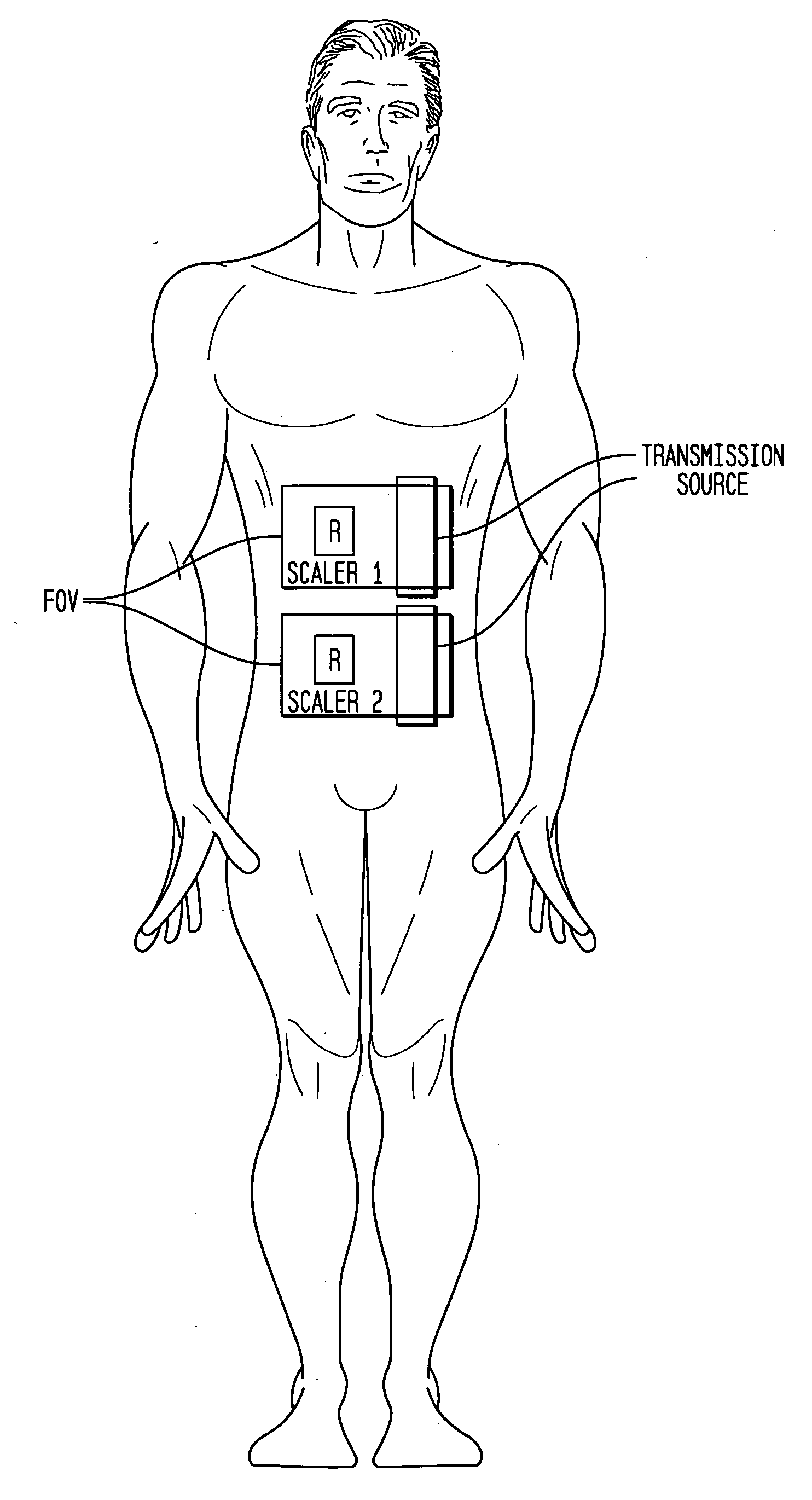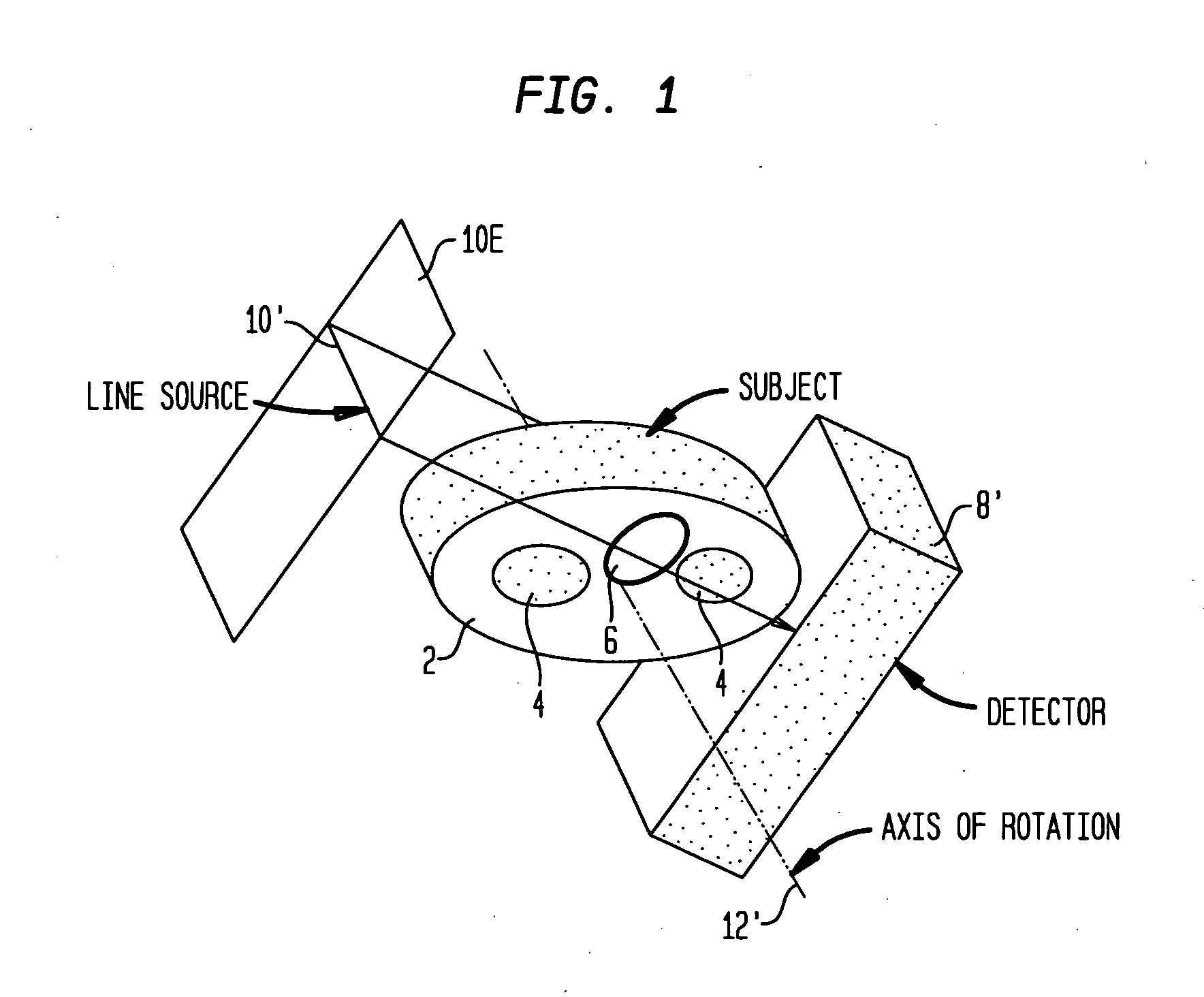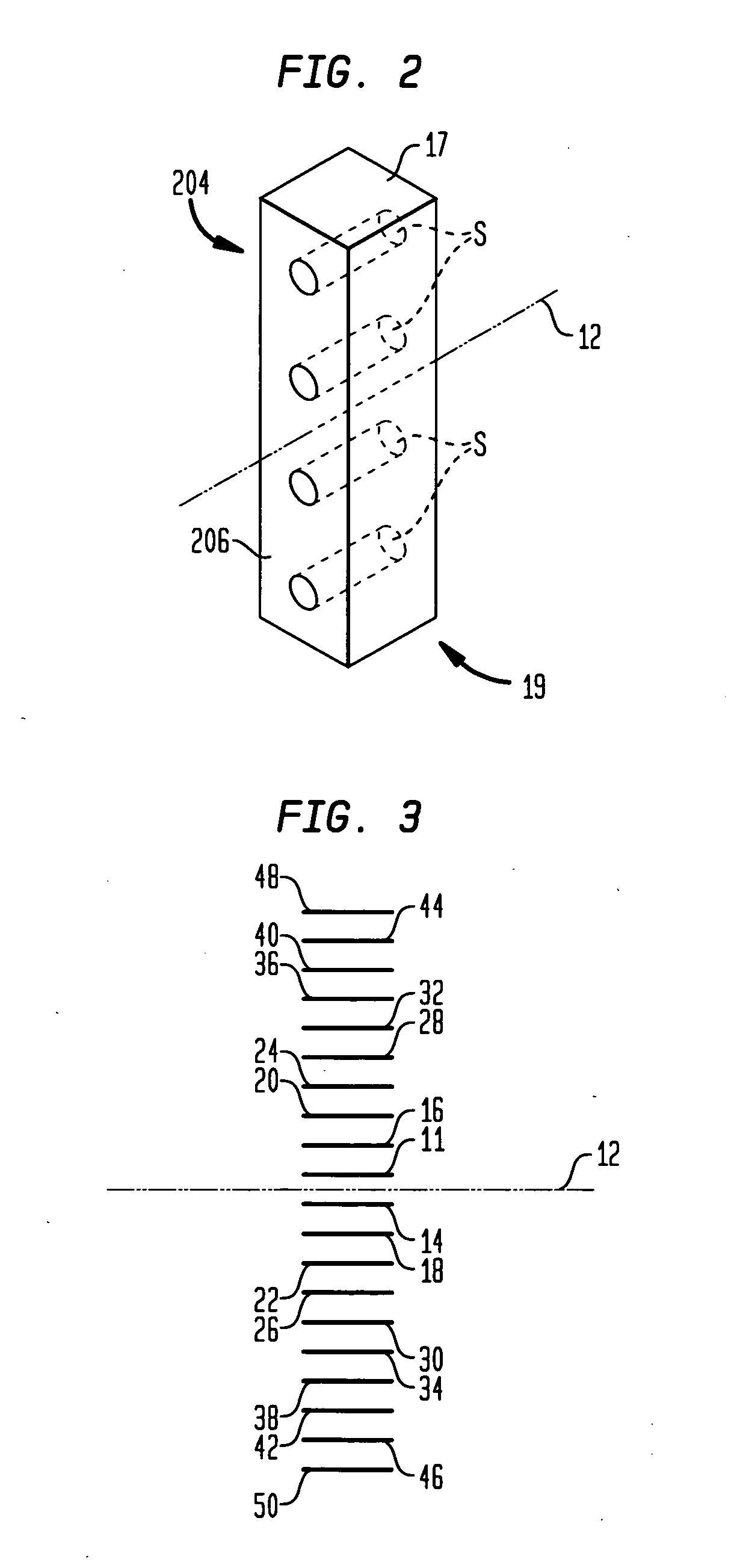Tomographic reconstruction of transmission data in nuclear medicine studies from an array of line sources
a line source and transmission data technology, applied in the field of single photon emission computed tomography (spect) nuclear medicine studies and correction of data attenuation, can solve the problems of inability to accurately represent line integrals of radioisotopes in quantitative image values in various projections, and distortions introduce errors or artifacts,
- Summary
- Abstract
- Description
- Claims
- Application Information
AI Technical Summary
Benefits of technology
Problems solved by technology
Method used
Image
Examples
Embodiment Construction
[0020] While the present invention may be embodied in many different forms, a number of illustrative embodiments are described herein with the understanding that the present disclosure is to be considered as providing examples of the principles of the invention and such examples are not intended to limit the invention to preferred embodiments described herein and / or illustrated herein.
Summary of Attenuation Correction Procedure and Set-Up
[0021] Before explaining the various aspects and preferred embodiments of the present invention, a brief explanation will be given of a conventional procedure for obtaining transmission CT data for attenuation correction in SPECT studies. In a SPECT study, a collimated detector is rotated to a plurality of consecutive angularly separated stationary positions around a patient. Typically, for a conventional (180°) cardiac SPECT study, the detector will be rotated to 60 stationary positions or stations, each spaced 3° from the stations adjacent to i...
PUM
 Login to View More
Login to View More Abstract
Description
Claims
Application Information
 Login to View More
Login to View More - R&D
- Intellectual Property
- Life Sciences
- Materials
- Tech Scout
- Unparalleled Data Quality
- Higher Quality Content
- 60% Fewer Hallucinations
Browse by: Latest US Patents, China's latest patents, Technical Efficacy Thesaurus, Application Domain, Technology Topic, Popular Technical Reports.
© 2025 PatSnap. All rights reserved.Legal|Privacy policy|Modern Slavery Act Transparency Statement|Sitemap|About US| Contact US: help@patsnap.com



